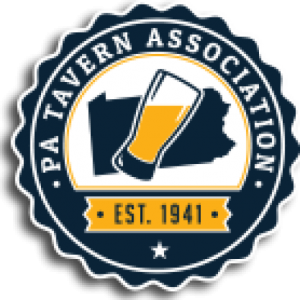PLBTA Summer Conference
July 14, 2025
Hosted by the Racehorse Tavern (738 N. Biesecker Road, Thomasville, Pa.)
 This is a free event for Members of the Pennsylvania Licensed Beverage and Tavern Association. Seating is limited to 60 attendees. Please be sure to register online at at https://form.jotform.com/250704702900144 or by sending an email to pataverns@pataverns.com. If using email, include your name, number of attendees, name of establishment, and phone number.
This is a free event for Members of the Pennsylvania Licensed Beverage and Tavern Association. Seating is limited to 60 attendees. Please be sure to register online at at https://form.jotform.com/250704702900144 or by sending an email to pataverns@pataverns.com. If using email, include your name, number of attendees, name of establishment, and phone number.
- 10 a.m. Welcome Address (Chuck Moran, PLBTA, and Jim DeLisio, Racehorse Tavern)
- 10:15 a.m. Get Your Questions Answered — PLCB Wholesale Division: As a licensee, you order plenty of liquor from the state. You probably have questions. Representatives of the PLCB Wholesale Team will take your questions during this informative Q&A session
- 11:00 a.m. PLCB Mixer and Break
- 11:15 a.m. Liquor Liability: Learn what industry specialists with Hospitality Risk Consultants are seeing when it comes to protecting your establishment
- Noon HRC Mixer, Break with refreshments
- 12:30 p.m. Inside Baseball Legislative Session and Impact Lobbying: Learn from PLBTA Lobbyists, Board Members, and Staff what is happening in Harrisburg that could affect your establishment, strategies used to lobby, and your role as a Member
- 1:15 p.m. Working With Pennsylvania Distilleries To Order Supplies: Licensees have an option of buying directly from Pennsylvania-based distilleries that have a limited distillery license. Learn more about the benefits of doing so from an industry specialist with Holla Spirits.
- 2 p.m. Networking hour: Meet with your colleagues and preferred vendors while you enjoy light refreshments before departing
- 3 p.m. End of Conference
Other Summer Conference Activities
- Taste samples from Holla Spirits
- With VGTs and Skill Games heating up at the State Capital, meet with a representative of J&J Gaming to learn more about their products and services. Try out the latest in VGT technology
- Learn about services from Kelly Benefits
Don’t forget to register in advance. Seating is limited. Registration at https://form.jotform.com/250704702900144














